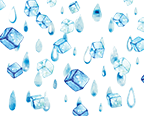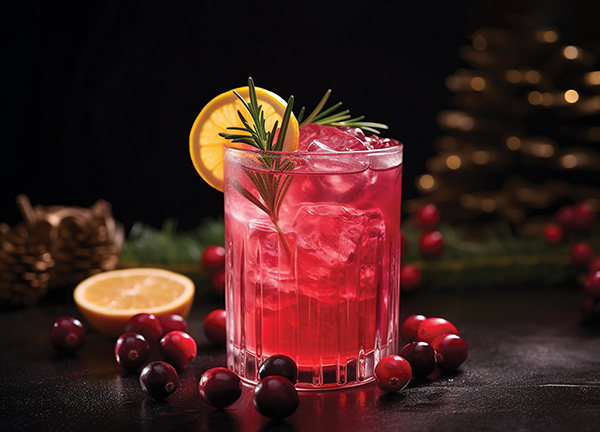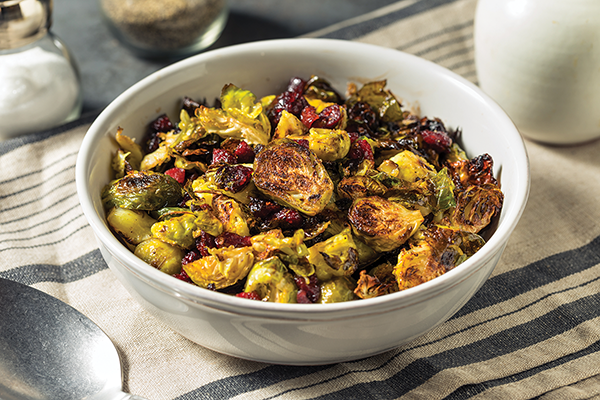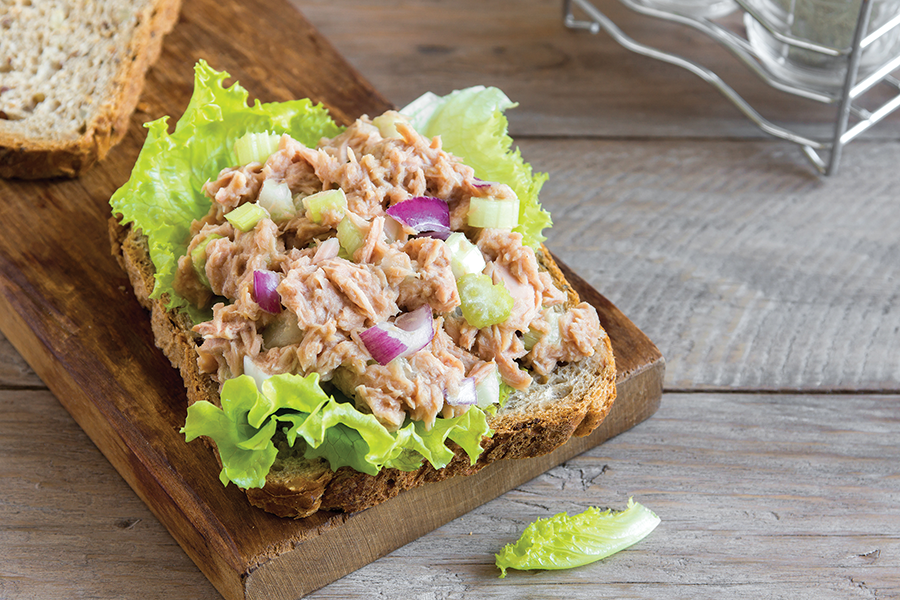
by Aliza Becker, BA, MPS
Modern cold showers may have been first employed as a tool to cure mentally ill individuals; in the mid-17th century, Flemish physician Jan Baptist van Helmont would plunge patients into ponds or the ocean suddenly and unawares after hearing the story of a man who had recovered his senses after jumping into a lake.1 Though the practice was eventually condemned, cranial autopsies of such patients led to the discovery of inflamed and distended vessels; this supported the idea that the brains of these individuals needed to be cooled, giving rise to the concept of raining a constant stream of cool water down upon their heads as a therapeutic technique.1
Studies Showing Potential Benefits
More recent research suggests there may be some truth to the potential effects of a cold shower on inflammation in the body. In sports, cold-water immersion (CWI) and other cryotherapies are often prescribed following high-intensity exercise to hasten physical recovery.2 A meta-analysis of 14 studies by Merrick et al3 suggested that CWI may reduce muscle soreness in the first 96 hours after exercise, especially high-intensity exercise, and improve the recovery of explosive muscle power. Roberts et al4 observed that, after high-intensity resistance exercise, participants who underwent CWI were able to lift greater loads during subsequent weighted squats compared to participants who underwent active recovery (low-intensity cycling). Gregson et al5 similarly found that CWI attenuates muscle damage after exercise and suggested that it may assist in injury rehabilitation by promoting greater reductions in muscle blood flow. Given that exposure to cold water reduces the temperature of skin, core, and muscle,2 the benefits of CWI may be even more pronounced after exercising in certain extreme environments. For example, Ajjimaporn et al6 reported that a cold shower more effectively led to thermal comfort by facilitating a faster recovery in heart rate after high-intensity cycling in a hot environment compared to passive recovery. Additionally, Butts et al7 observed that a cold shower promoted faster cooling rates, compared to no treatment, following use of an ergometer or treadmill to achieve a state of hyperthermia.
According to Siqueira et al,8 although multiple immersions in cold water appeared to attenuate muscle damage, they did not appear to alter systemic inflammation or muscle function recovery. Furthermore, Roberts et al4 noted that CWI did not enhance the recovery of maximal muscle function, and Merrick et al3 observed the same for muscle strength. Additionally, in a systematic review and meta-analysis, Malta et al9 reported that post-exercise CWI had a deleterious effect on resistance training adaptations. Altogether, these studies suggest that CWI may influence the recovery of certain muscle parameters rather than improving whole-muscle health.
Still, other research suggests that cold showers may have a positive effect on general health. Buijze et al10 examined the cumulative effects of routine (hot-to-) cold showers on sickness, quality of life, and work productivity in adults without severe comorbidities, observing a statistical reduction in self-reported absences due to illness, although the number of sick days was unchanged. Demori et al11 reported that winter sea-bathing was associated with lower levels of self-reported stress and greater well-being together with higher levels of salivary immunoglobulin A, considered a first-line defense against infection. Shevchuk et al12 hypothesized that CWI may be a potential treatment for depression—The high density of cold receptors in the skin may allow for a significant amount of electrical impulses to be transmitted from peripheral nerve endings to the brain during CWI, culminating in an anti-depressive effect. Additionally, exposure to cold is known to activate the sympathetic nervous system and increase the blood levels of β-endorphin and noradrenaline as well as synaptic release rates of noradrenaline in the brain.17
Studies Showing Potential harm
Exposure to cold water induces vasoconstriction,2 suggesting that there are also some risks associated with taking cold showers in individuals susceptible to cardiac complications. Schmid et al13 noted a significant increase in premature ventricular contractions following submersion in moderately cold water among patients with chronic heart failure, raising concerns about the potential for high-grade ventricular arrhythmias. Kolettis et al14 detailed the case of a 48-year-old woman who, after falling into and being pulled from a cold-water tank, experienced radiating chest pain and showed evidence via electrocardiography of inferolateral myocardial ischemia, a precursor to myocardial infarction (heart attack). Shattock et al15 considered the potential that some deaths ascribed to drowning or hypothermia may in fact be due to cardiac arrhythmias resulting from a conflict between two autonomic responses—the cold shock response, triggered by rapid submersion in cold water, and the diving response, triggered by attempted breath-holding.
Adverse dermatological symptoms may also be possible: Fukumoto et al16 reported a pediatric case of recurrent hives on the arms of an eight-year-old girl after periodic contact with cold water; and Yee et al17 reported that swimming (vs. exposure to cold air or water or the ingestion of cold food or beverages) triggered the majority (77.6%) of Grade-3 reactions (anaphylaxis) recorded in a group of 415 children with acquired cold-induced urticaria.
Bottom Line
There is evidence supporting the use of CWI as a means to reduce muscle soreness and promote muscle recovery following exercise, particularly after high-intensity work-outs or exercising in extreme conditions. There is also some evidence that routinely taking (hot-to) cold showers may have positive effects on the immune system, while winter sea-bathing has been associated with improved mood (reduced symptoms of anxiety/stress, depression). On the flip side, exposure to cold water has been shown to increase the risk of cardiac complications in people with existing heart problems, as well as trigger hives and even anaphylaxis in some children. Thus, while taking hot-to-cold showers is probably fine for most people, provided they are generally healthy, it would be prudent to consult with a licensed healthcare professional before attempting CWI of any kind. And for people with heart problems, CWI and cold showers should probably be avoided altogether, unless under the direct supervision of a physician.
Sources
1. Cox SC, Hocking C, Payne D. Showers: from a violent treatment to an agent of cleansing. Hist Psychiatry. 2019;30(1):58–76.
2. White GE, Wells GD. Cold-water immersion and other forms of cryotherapy: physiological changes potentially affecting recovery from high-intensity exercise. Extrem Physiol Med. 2013;2(1):26.
3. Merrick MA. Cold water immersion to improve postexercise recovery: a meta-analysis. Clin J Sport Med. 2013;23(3):242–243.
4. Roberts LA, Nosaka K, Coombes JS, Peake JM. Cold water immersion enhances recovery of submaximal muscle function after resistance exercise. Am J Physiol Regul Integr Comp Physiol. 2014;307(8):R998–R1008.
5. Gregson W, Black MA, Jones H, et al. Influence of cold water immersion on limb and cutaneous blood flow at rest. Am J Sports Med. 2011;39(6):1316–1323.
6. Ajjimaporn A, Chaunchaiyakul R, Pitsamai S, Widjaja W. Effect of cold shower on recovery from high-intensity cycling in the heat. J Strength Cond Res. 2019;33(8):2233–2240.
7. Butts CL, McDermott BP, Buening BJ, et al. Physiologic and perceptual responses to cold-shower cooling after exercise-induced hyperthermia. J Athl Train. 2016;51(3):252–257.
8. Siqueira AF, Vieira A, Bottaro M, et al. Multiple cold-water immersions attenuate muscle damage but not alter systemic inflammation and muscle function recovery: a parallel randomized controlled trial. Sci Rep. 2018;8(1):10961.
9. Malta ES, Dutra YM, Broatch JR, Boshop DJ, Zagatto AM. The effects of regular cold-water immersion use on training-induced changes in strength and endurance performance: a systematic review with meta-analysis. Sports Med. 2021;51(1):161–174.
10. Geert Buijze A, Sierevelt IN, van der Heijden BCJM, Dijkgraaf MG, Frings-Dresen MHW. The effect of cold showering on health and work: a randomized controlled trial. PLoS One. 2016;11(9):e0161749.
11. Demori I, Piccinno T, Saverino D, et al. Effects of winter sea bathing on psychoneuroendocrinoimmunological parameters. Explore (NY). 2021;17(2):122–126.
12. Shevchuk NA. Adapted cold shower as a potential treatment for depression. Med Hypotheses. 2008;70(5):995–1001.
13. Schmid J-P, Morger C, Noveanu M, Binder RK, Anderegg M, Saner H. Haemodynamic and arrhythmic effects of moderately cold (22 degrees C) water immersion and swimming in patients with stable coronary artery disease and heart failure. Eur J Heart Fail. 2009;11(9):903–909.
14. Kolettis TM, Katsouras CS, Pappas K, Goudevenos J. Myocardial ischemia caused by cold-water submersion. Int J Cardiol. 2005;99(3):467–469.
15. Shattock MJ, Topton MJ. ‘Autonomic conflict’: a different way to die during cold water immersion?. J Physiol. 2012;590(Pt 14):3219–3230.
16. Fukumoto T, Ogura K, Fukunaga A, Nishigori C. Aquagenic urticaria: Severe extra-cutaneous symptoms following cold water exposure. Allergol Int. 2018;67(2):295–297.
17. Yee CSK, El Khoury K, Albuhairi S, Broyles A, Schneider L, Rachid R. Acquired cold-induced urticaria in pediatric patients: a 22-year experience in a tertiary care center (1996–2017). J Allergy Clin Immunol Pract. 2019;7(3):1024–1031.e3.
psychoneuroendocrinoimmunological parameters. Explore (NY). 2021;17(2):122–126.
12. Shevchuk NA. Adapted cold shower as a potential treatment for depression. Med Hypotheses. 2008;70(5):995–1001.
13. Schmid J-P, Morger C, Noveanu M, Binder RK, Anderegg M, Saner H. Haemodynamic and arrhythmic effects of moderately cold (22 degrees C) water immersion and swimming in patients with stable coronary artery disease and heart failure. Eur J Heart Fail. 2009;11(9):903–909.
14. Kolettis TM, Katsouras CS, Pappas K, Goudevenos J. Myocardial ischemia caused by cold-water submersion. Int J Cardiol. 2005;99(3):467–469.
15. Shattock MJ, Topton MJ. ‘Autonomic conflict’: a different way to die during cold water immersion?. J Physiol. 2012;590(Pt 14):3219–3230.
16. Fukumoto T, Ogura K, Fukunaga A, Nishigori C. Aquagenic urticaria: Severe extra-cutaneous symptoms following cold water exposure. Allergol Int. 2018;67(2):295–297.
17. Yee CSK, El Khoury K, Albuhairi S, Broyles A, Schneider L, Rachid R. Acquired cold-induced urticaria in pediatric patients: a 22-year experience in a tertiary care center (1996–2017). J Allergy Clin Immunol Pract. 2019;7(3):1024–1031.e3.





